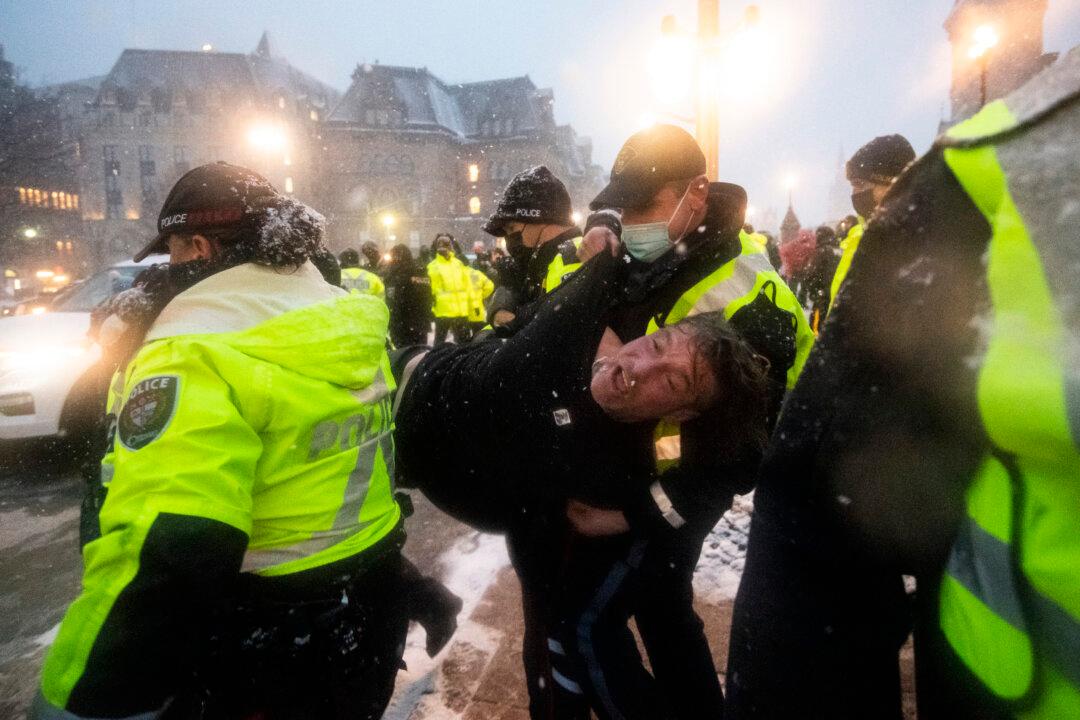The Canadian Bankers Association told a parliamentary committee that its members froze Freedom Convoy protesters’ bank accounts during the public order emergency not only to comply with RCMP disclosures but also based on “their own determinations.”
“We primarily relied on the names provided by the RCMP, but there were obligations under the order separate from that, that required banks to make their own determinations,” said Angelina Mason, general counsel and vice-president of the Canadian Bankers Association (CBA), as she testified before the Finance Committee on March 7.





